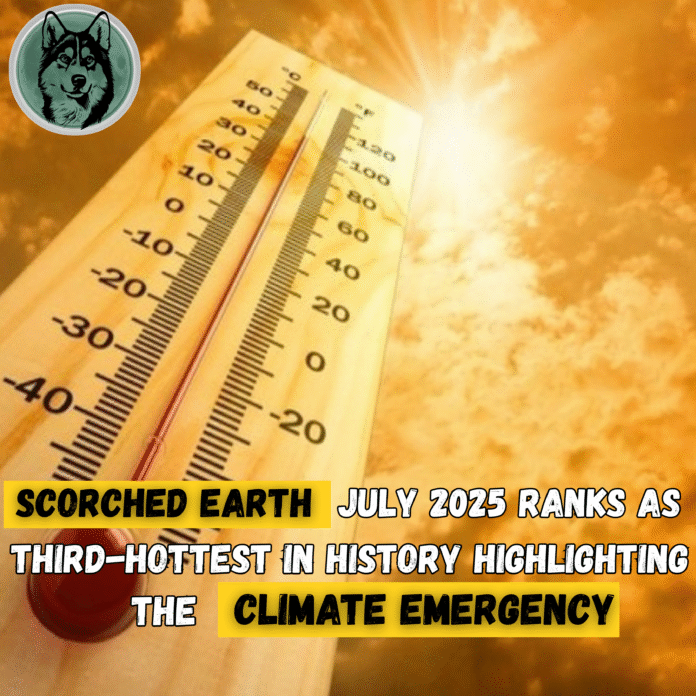EU scientists warn of accelerating climate crisis as global temperatures continue to rise
LAHORE – August 8, 2025:
The European Union’s Copernicus Climate Change Service has confirmed that July 2025 was the third-hottest July ever recorded globally, underscoring the intensifying threat posed by climate change.
While it did not break the all-time record set in July 2023, the global temperature in July 2025 was still 1.25°C above the pre-industrial average, making it one of the warmest months in modern history. The month was marked by extreme heatwaves and scorching temperatures across multiple continents, including Turkiye, which saw its highest-ever temperature of 50.5°C.
Breaching the Paris Agreement Threshold
Data also reveals that the 12-month average ending in July 2025 was 1.53°C warmer than the pre-industrial baseline — exceeding the 1.5°C limit set in the Paris Agreement. This threshold is considered a critical benchmark in global climate efforts, beyond which the likelihood of severe and irreversible climate impacts increases significantly.
Experts Sound Alarm
Climate scientists warn that the continued rise in global temperatures is a clear indicator of worsening climate instability, with heatwaves, floods, droughts, and storms becoming more frequent and intense.
“Global temperatures are moving in the wrong direction,” said one climate researcher. “Without urgent and coordinated action to reduce greenhouse gas emissions, we are on a dangerous path.”
In recent months, multiple regions — from Europe to South Asia — have experienced unprecedented weather events, affecting agriculture, water supplies, and public health. July’s scorching temperatures serve as a stark reminder of the risks posed by a warming planet.
Call for Global Action
The Copernicus report has renewed calls for governments, industries, and individuals to take bold steps toward mitigating climate change. Experts are urging accelerated shifts to renewable energy, investment in energy efficiency, and enhanced support for vulnerable communities already facing the brunt of climate-related disasters.
The latest data reinforces the urgency of fulfilling international climate commitments and adopting adaptive strategies to cope with a rapidly changing environment.






















